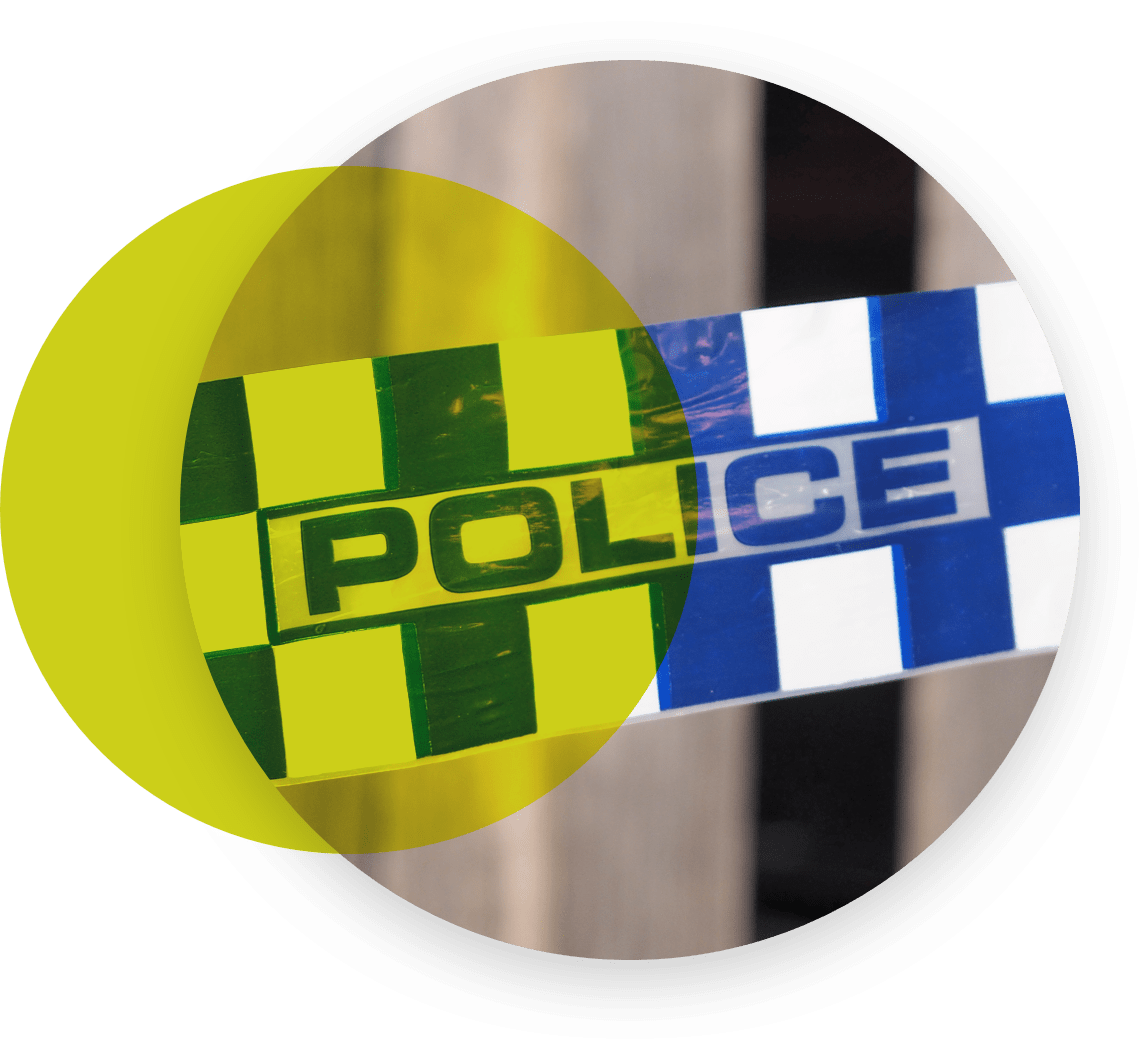What is Police Misconduct?
Police misconduct occurs where police officers
act outside of their powers or break the law.

Understanding Police Misconduct
If a police officer acts outside of their powers or breaks the law, you may be able to bring a claim for compensation. Serious police misconduct ranges from assault, false imprisonment and wrongful arrest to malicious prosecution. Whether your injury is physical or psychological, you may be able to sue the police for misconduct.

Do I have a claim?
You may be able to bring a claim for compensation against the police if you have experienced serious police misconduct. Bringing a claim is sometimes called “suing”.
Examples of the types of claims you may bring include:
- Assault
Police are only able to use force in specific circumstances. You may have a claim if force or capsicum/pepper spray was unreasonably used against you. You may also have a claim if you were threatened with the use of force. Force includes acts such as punching and kicking as well as striking a person with a police baton or torch. - False imprisonment & wrongful arrest
You may have a claim if you were taken into police custody or arrested without a valid reason. - Malicious prosecution
You may be able to bring a claim if you have been charged with a criminal offence without a legitimate basis.
You are not always required to have a physical injury to bring a claim. You may have suffered shock or psychological injury as a result of the police misconduct.
Our legal team have a dedicated website
for police misconduct matters.

When can I bring a claim?
You have three years to bring a claim. This is a strict time limit which can only be extended in special circumstances.
When should I talk to a lawyer?
You should speak to a lawyer as soon as possible after any police misconduct takes place. This is important as the lawyer will take steps to preserve evidence. Evidence becomes harder to collect and may be destroyed as time passes.
You will need to talk to a civil lawyer if you wish to bring a claim for compensation. You may also need to see a criminal lawyer if you are being maliciously prosecuted.
Are there alternatives to suing the police?
If you have a serious complaint you should speak with a lawyer before considering these alternatives. Pursuing these alternatives may impact on any claim you chose to make in the future.
You can approach the Victoria Police directly and request an
'ex-gratia' payment. These are only made in special circumstances. Usually, your lawyer will make this application on your behalf and represent you in the negotiations.
You may also choose to make a complaint.
Where can I make a complaint about police conduct?
You may wish to speak to a lawyer before making a complaint as your complaint may impact any claim you bring.
You can make a complaint to:
- The Station Commander or the Police Conduct Unit of Victoria Police. The Police Conduct Unit is a division of the Victoria Police which investigates the conduct of Victoria Police officers.
- The Independent Broad-Based Anti-Corruption Commission (“IBAC”) is an independent body which is separate from Victoria Police. IBAC may refer the complaint to Victoria Police if the complaint does not meet its strict requirements.
- Complaints about the Australian Federal Police should be made to the Commonwealth Ombudsman.
If you believe that you have been discriminated against or that your human rights have been breached, you may also wish to complain to either the Victorian Equal Opportunity and Human Rights Commission or the Australian Human Rights Commission.
Find out more below about our tool below to help you make a complaint.
No win, no fee
Our injury law team offers 'no win, no fee' in most Police misconduct matters. We offer all our new clients a no cost and obligation free first appointment and would be happy to discuss how we can assist you further during this time.
Speak with a lawyer.
Our police misconduct team help people with civil claims and coronial inquests. We're also responsible for advocacy work and representing people in criminal matters.
Jeremy King.
Principal.
- Injury Law & Police Misconduct
- 03 9890 3321
- Email Address: j.king@robinsongill.com.au
Estelle Petrie.
Senior Associate.
- Police Misconduct
- 03 9890 3321
- Email Address: e.petrie@robinsongill.com.au
Where can I go for support?
View OptionsDo I have a case?
A great place to start is to complete our 'Do I have a case?' chatbot for Police Misconduct. This confidential and free tool will help our lawyers quickly assess your chances of bringing legal action against the State Government of Victoria.
It can help with misconduct offences against Victoria Police, Australian Federal Police, Protection Services Officers and Corrections Officers.
Use our police misconduct chatbotResources & FAQs
Answers to common questions in
relation to the expertise.
BACHELARD V AUSTRALIAN FEDERAL POLICE [2025] FCAFC 5
The Full Court of the Federal Court of Australia (the Court) has upheld the appeal of Australian journalist Michael Bachelard against a decision of the Administrative Appeals Tribunal (AAT) that denied him access to documents from Australian Federal Police (AFP) under the Freedom of Information Act 1982 (Cth) (FOI Act).
Smit v State of Victoria – Analysing False Imprisonment
Smit v State of Victoria examines the legal framework governing lawful arrests and false imprisonment. The plaintiff, Smit, was arrested at a Melbourne anti-lockdown protest in October 2020. Smit claimed that three consecutive arrests amounted to instances of false imprisonment.
Police Oversight Consultation Summary finally released after more than three years
On 4 February 2025 the Government quietly tabled a Consultation Summary for the Department of Justice and Community Safety’s (DJCS) “Systemic Review of Police Oversight” (Systemic Review). The consultation summary sets out the views gathered through public engagement conducted by the DJCS as part of the Systemic Review.














